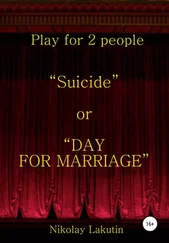How does a person lead a coherent life with a stable self, whatever that self may be? Our Mutual Friend proposes a route to a whole or more or less whole self through memory, mirroring recognition, dialogue, and finally telling and fiction. As the connective tissue of time, memory is certainly essential to the internal narrative we create for ourselves. When I was hospitalized for a migraine in 1983, I was in a bed in the neurology ward at Mount Sinai Hospital across from a woman who had suffered a severe stroke. She spoke rarely and only in fragments. Every day her husband came to visit her, but she had lost the ability to recognize him. She was a tough old lady who escaped the fetters the nurses bound her with every night, but she had no self that existed from one moment to another — no story over time. That had vanished. A number of years ago, a woman contacted my husband and told him the story of her husband, a gifted composer and musician, whose memory was destroyed by meningitis. He kept a notebook, and in it he wrote hundreds and hundreds of times the same exclamation, “12:00. Where am I? 12:01. Where am I? 12:02. Where am I?” And on and on. Trapped in the nightmare of eternal repetition, he was unable to connect one minute to another but retained enough self-consciousness in those isolated moments to feel his disorientation. It is hard to think of a worse plight than living in a state of continual agony without any context for it. For this man, time had lost all meaning.
One of the most moving accounts of a man’s struggles to regain a continuous identity is recorded in A. R. Luria’s The Man with a Shattered World. Luria’s patient, Zazetsky, was injured during World War II. Shell fragments damaged the left occipito-parietal region of his brain, leaving him with severe amnesia and aphasia. His field of vision was destroyed, and he had great difficulty recognizing objects, and even when he did recognize them, he often couldn’t name them. He also lost both sight and awareness of the right side of his body, suffered from severe body-image distortions, and discovered to his horror that he could no longer read. Despite his grotesque handicaps, he relearned the alphabet and attained a level of literacy. Remarkably enough, he was still able to write — especially if he didn’t lift his hand from the paper. Despite the fact that he had tremendous difficulty both remembering and reading what he had written, he recorded memories and experiences from his life. “It’s depressing,” he wrote, “having to start all over and make sense out of a world you’ve lost because of injury and illness, to get these bits and pieces to add up to a coherent whole.” Zazetsky clung to the idea of a whole, and he worked doggedly to try to create meaning from his memories despite the excruciating slowness of his task, but both his doctor, Luria, and Zazetsky himself make it clear that the fragmented reality of his daily life didn’t improve with time. He worked on the project until his death.
Unlike the stroke patient I met in the hospital, Zazetsky was painfully aware of what had happened to him — his self-consciousness remained intact. He had a recognizable self, but it was in tatters. Karen Kaplan-Solms and Mark Solms write about a patient with Wernicke’s aphasia in their book Clinical Studies in Neuro-Psychoanalysis, a woman who, like Zazetsky, was keenly aware of her affliction. “Oh yes,” Mrs. K. is quoted as saying, “I am in bits and pieces. I am in bits and pieces throughout my mind.” These morbid “bits and pieces” and the attempt to rebuild them into a coherent structure through language reverberate strongly with the central drama of Our Mutual Friend.
Drowning or almost drowning in the Thames means entering a frightening broken space that has slipping borders and in which things and bodies can’t be distinguished from one another, a place that is metaphorically connected to epilepsy in Headstone and to delirium in Eugene Wrayburn. After Eugene is saved by Lizzie from the Thames, the narrator tells us that his face has been so mutilated that his own mother wouldn’t have recognized him. While he is unconscious, Eugene’s feverish utterances are compared to “the frequent rising of a drowning man from the deep.” But then, in a moment of clarity, he says, “When you see me wandering away from this refuge that I have so ill deserved, speak to me by my name, and I think I shall come back.” This calling of a name echoes Mr. Venus’s tour of his articulated bodies and again has a parallel in clinical experience. In Awakenings, Oliver Sacks describes what he calls “lucid intervals”:
At such times — despite the presence of massive functional or structural disturbances to the brain — the patient is suddenly and completely restored to himself. One observes this, again and again, at the height of toxic, febrile or other deliria: sometimes a person may be recalled to himself by the calling of his name; then for a moment or a few minutes, he is himself, before he is carried off into delirium again.
In Our Mutual Friend, the act of calling someone by name is invested with this same restorative magic, one that promises at least temporary cohesion. Because a proper name is the symbolic site of the self in language, it is the linguistic marker of a collective, not private, reality. As such, it serves as a way out of unconsciousness or, in terms of the book’s literal and metaphorical drowning, a way up to the surface and from there out to other people. A word is essentially distinct from a visual image inside us because, when we speak, we hear ourselves speaking. By crossing the border of the body, a word is literally inside and outside us at the same time. The names our parents gave us mark us for life, providing a sign of continuity that yokes an unlikely pair — infant and old man. Names are powerful, and Sacks is right: Their utterance can bring you back or keep you awake.
Immediately after my car crash, I looked to see if I was whole and miraculously discovered that I was. Nevertheless, I froze. I didn’t move. I think I could have, but I didn’t. I knew that my husband and daughter had managed to get out on the other side of the car, and I must have been relieved that they were okay, but I don’t recall feeling this. Instead, I felt entirely empty, very, very calm, and after some time — I have no idea how long — my vision dimmed and grayed and I felt myself going under. Then, as if by magic, there was a man speaking to me. He reached in through the broken window from the side, put his hands on my face, and told me not to move my neck. I remember he said he was a paramedic who just happened to be walking by and that he had seen the accident. “I’m losing consciousness,” I said to him. “What is your name?” he said. I told him. “What day is it?” I told him. He asked me my name again, and I told him again. I am convinced that this simple dialogue, combined with the stabilizing touch of his hands, kept me conscious until the firemen arrived.
Eugene is repeatedly called back by Lizzie, but in his semiconscious mutterings he seems to be searching for another word he can’t find. Jenny Wren gives it to Mortimer Light-wood, who then passes it on to Eugene. The word is wife. Eugene’s movement is from unrecognizable near-corpse, a not-I, to being named and identified as a person who belongs to other people. Exactly the same threefold movement occurs in two short sentences spoken by Lucy Manette in A Tale of Two Cities. A door is opened onto the broken figure of a man, a man who has been confined to darkness in a tower cell for many years, a man who has forgotten his former life and his own name, a man with a voice so thin from disuse that it is “like a voice underground.” When she first sees this ruined person, Lucy says, “I am afraid of it,” and then a moment later, “I mean of him, my father.” The Dickensian shift from it to him takes a third step to include my father. Like wife, father articulates a human connection, and through this spoken bond a process of reclamation and recollection begins. This is the mutuality announced by the book’s title. The words Our Mutual Friend go beyond duality. They imply at the very least three people.
Читать дальше












